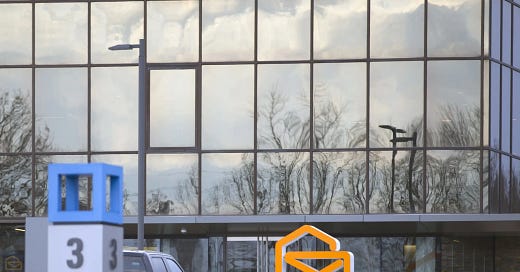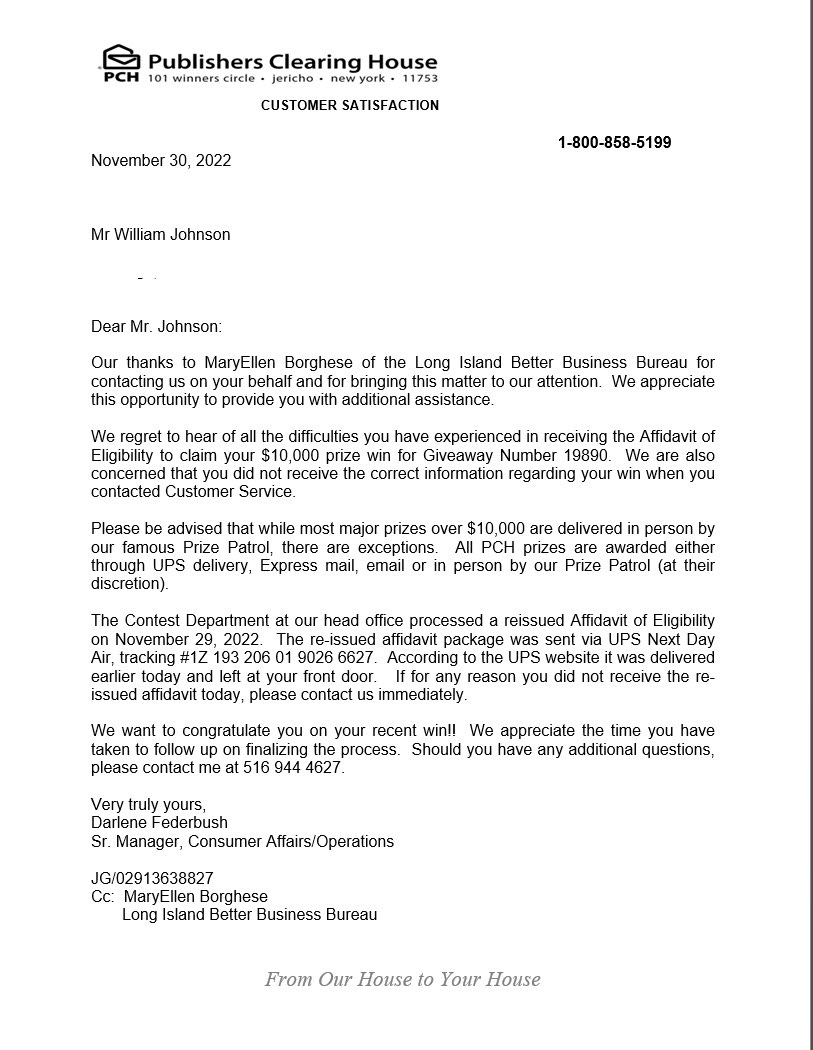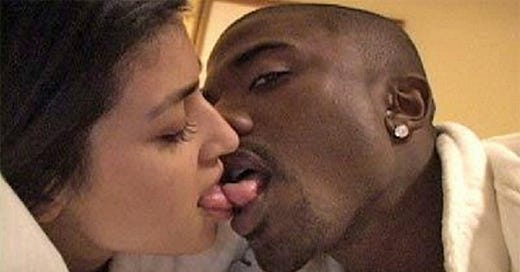
Publishers Clearing House Bankruptcy Filing - How It Might Affect You & Past Winners
'Win For Life' Winners Might Want To Get Legal Advice Now, notable lawyers are advising.
Yes, that Publishers Clearing House that inundates us daily with chances at a million dollars or ‘Win for Life’ Sweepstakes is declaring bankruptcy. So those few people who actually did win the ‘For Life’ sweepstakes might want to retain a lawyer just to make sure they are safe. For prizes like that, companies are required to set up an escrow account, but in today’s world, it would be wise to double check.
I speak from experience as I have won about twelve-thousand dollars from them in 2022. The first was a ten-thousand dollar prize, and I really had to work hard to collect it. It was one of those redeem tokens prizes for an office furniture grand prize. I noticed my name on it one week and called their offices. Thankfully, I got the right customer service person who confirmed that I had won and would be hearing from them very soon within two weeks.
Two weeks came and went, but no contact. I called again, and another woman congratulated me on the win and gave me a sweepstakes number and said for prizes of ten-thousand and above, the Prize Patrol came to visit. So, in her words, “Expect a visit from us very soon.”
Another two weeks and nothing happened. I e-mailed their customer service, which again, they confirmed the win and said they had sent me a letter to get notarized for the prize money. They said they would resend in the next two weeks.
Again, another two weeks (they had a big thing for two weeks) and nothing came in the mail. I even checked with our post office to confirm nothing. The post office master informed me that Publishers Clearing House was quite famous for people thinking they won something and then never delivering.
Naturally, this got me in action so I contacted our Attorney General and even they were quite familiar with Publishers Clearing House antics. I also reached out to the Better Business Bureau in New York to report them.
Funny enough, within 2 days of filing a complaint with the Better Business Bureau, I suddenly heard from Publishers Clearing House in a reply. Within 24 hours, I received a Priority Fed Ex Overnight with documents to get notarized for the prize. I overnighted that back and within 48 hours was sent a fed ex with a check for ten-thousand dollars, ten balloons of different colors that hadn’t been inflated yet, along with a PCH pen. Plus, they wanted me to fill out an affidavit stating how excited I was that I had one. I don’t think PCH was too interested in me filling out my journey to collect that money though.
I tell this story as I’ve heard from so many people (literally in the thousands) going through similar experiences with Publishers Clearing House. Now with them declaring bankruptcy and claiming that it’s just to ‘restructure,’ don’t be surprised if you start hearing tales of woe from people who thought they won and never got anything.
PCH loves to talk about those scammers who pretend to be them, but PCH has got plenty of BBB and Attorney General complaints all over the United States.
So, if you do win and Publishers Clearing House gives you a two-week runaround, immediately contact your state’s Attorney General and the Better Business Bureau in New York State where PCH is headquartered. If you see your name as a winner on one of the ‘token redeems,’ I’d highly suggest contacting their customer support, getting the person’s name and confirming that you won so you’ve got a trail started.
Not everyone has had a bad experience, but after fighting for nearly three months, I knew I wasn’t the only one,and my Attorney General was a huge help in reaching out to others.
While some wonder what’s the bother since you don’t spend anything. Well, as with anything, you are helping them earn ad dollars every time you play in hopes of winning. That’s a social contract, and as my Attorney General informed me, that’s very binding.
Now on to the news about their declaring bankruptcy.
Publishers Clearing House (PCH), a decades-old marketing and sweepstakes company known for its large "Prize Patrol" checks, has filed for Chapter 11 bankruptcy protection. This move marks a significant shift in the company's business strategy.
In a recent announcement, PCH revealed that it is using the bankruptcy process to transition away from its legacy business model, which included direct-mail, retail merchandise, and magazine subscriptions. Instead, the company aims to adopt a "pure digital advertising" model, continuing to offer free-to-play entertainment and prizes.
The Chapter 11 proceedings were filed in New York on Wednesday, amidst growing financial strain for PCH. The company has faced rising operational costs and changing consumer habits in recent years. CEO Andy Goldberg stated that pivoting from the old business model will help PCH break free from past constraints and establish a strong foundation for the future.
Despite the bankruptcy filing, PCH assures that its famous sweepstakes are not going away. The company plans to operate in a "business-as-usual manner" throughout the bankruptcy process, with the "Prize Patrol" team continuing to deliver awards across the U.S. PCH has secured debtor-in-possession financing from Prestige Capital to fund operations during its restructuring.
PCH's history dates back to 1953 when Harold and LuEsther Mertz, along with their daughter Joyce Mertz-Gilmore, started a business from their Long Island, New York home. They initially sent direct-to-consumer mailings to solicit magazine subscriptions. The company later expanded its offerings to include a wide variety of merchandise and launched its first direct mail sweepstakes in 1967. The in-person "Prize Patrol" team was formed in 1989.
PCH became famous for surprising prize winners with oversized checks, often featured in TV commercials. The company has awarded over half a billion dollars in prizes and continues to attract millions of contestants. However, the company has faced financial strain, particularly in recent years.
William H. Henrich, co-chief restructuring officer for PCH, noted that while the company's direct mail and e-commerce programs were profitable for decades, changing consumer behavior, rising costs, and competition have negatively impacted the business. Henrich pointed to a handful of cost pressures, including rising shipping and postal rates, inventory and supply chain challenges that have continued since the start of the COVID-19 pandemic, and rising competition from major retailers like Walmart and Amazon.
PCH also faced scrutiny from regulators who raised concerns about consumers mistakenly believing that making purchases from the company would improve their chances of winning its sweepstakes. As a result, PCH has racked up several costly legal settlements over the years, most recently paying $18.5 million to resolve allegations from the Federal Trade Commission in 2018.
As of the end of March, PCH had total assets of nearly $11.7 million and total liabilities of about $65.7 million. The company currently has 105 employees and an annual gross revenue of about $38 million. PCH entered bankruptcy with $490,000 in cash and about $40 million in debts to employees, vendors, service providers, and landlords after a years-long decline in its legacy direct mail marketing business.
The company's magazine and merchandise advertising business brought in $879 million in revenue in 2018, but it began suffering losses as consumers shifted to online shopping, a trend exacerbated by the COVID-19 pandemic. The company's rising costs for printing, mailing, and TV advertising became unsustainable, leading the company to pull back from its direct mail marketing business.
CEO Andy Goldberg emphasized that PCH's world-renowned sweepstakes will continue to be a cornerstone of its experiences. The company intends to continue offering free-to-play entertainment and awarding prizes in the ordinary course of business during and after the bankruptcy process to uphold the historic legacy of Publishers Clearing House.
In 2023, PCH paid $18.5 million to settle U.S. Federal Trade Commission allegations that it misled consumers about its contests. The FTC alleged that the company manipulated consumers into believing that they had to make a purchase to win or to have a better chance of winning games that were advertised as "free to win".
PCH pays about $30,000 to prize winners each week, with approximately $1.8 million owed to recent prize winners. It also offers lifetime prizes, and it currently owes those prize winners about $26 million over the next 60 years.











